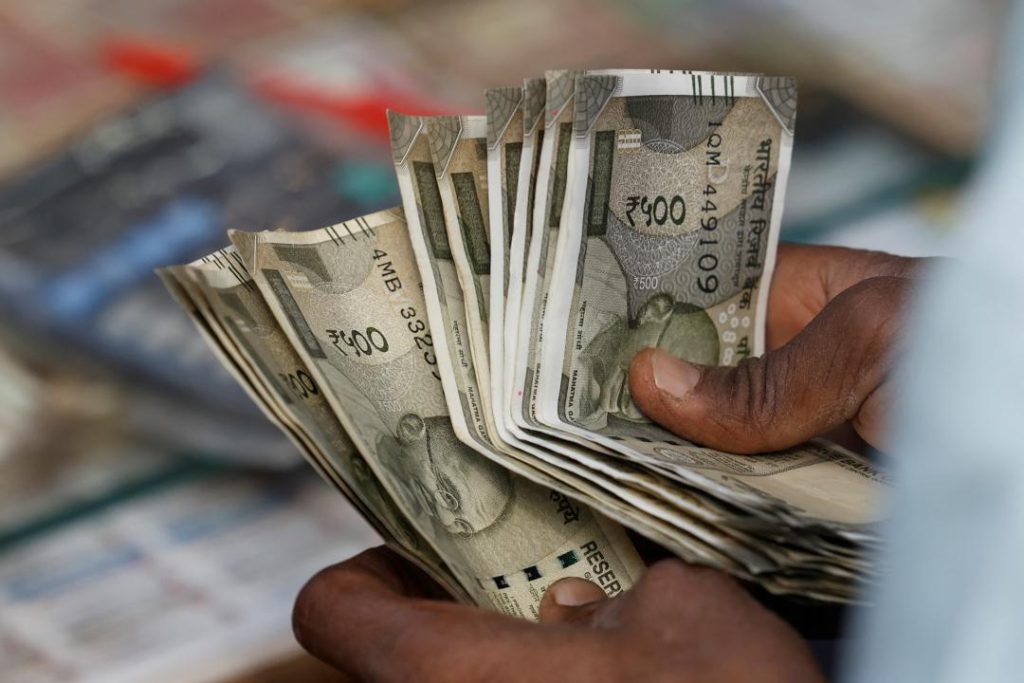
What Got Cheaper & Costlier in March as CPI Falls to 67-Month-Low of 3.34%?
The Consumer Price Index (CPI) in India has hit a 67-month low, falling to 3.34% in March, as per the data released by the Ministry of Statistics and Programme Implementation. This significant decline in retail inflation is attributed to the decrease in prices of essential commodities such as eggs, vegetables, and pulses. On the other hand, some commodities like spices, meat, fish, housing, recreation, and amusement saw marginal price drops, while fruit prices experienced a sizeable jump.
According to the data, the CPI, which measures the average change in prices of a basket of goods and services, has been steadily declining since January. The March figure is a significant improvement over the 3.69% recorded in February and the 4.06% recorded in January. The government has attributed this decline to a combination of factors, including a good harvest season, improved monsoon rains, and effective supply chain management.
Commodities That Got Cheaper
The prices of eggs, vegetables, and pulses saw considerable declines in March. Eggs became cheaper by 5.63%, vegetables by 4.17%, and pulses by 3.75%. This is a welcome relief for consumers, especially for those who rely on these essential commodities for their daily sustenance.
Spices, meat, fish, and housing saw marginal price drops of 0.25%, 0.15%, 0.13%, and 0.09%, respectively. Recreation and amusement activities, such as entertainment, travel, and leisure, also saw a slight decline in prices, with a drop of 0.06%.
Commodities That Got Costlier
On the other hand, fruit prices saw a significant jump, rising by 4.47% in March. This increase is attributed to a combination of factors, including a delay in harvesting and transportation, as well as short supply.
Cereals, milk, oil, sugar, confectionery, clothing, snacks, sweets, pan, tobacco, footwear, fuel, health, and education saw marginal rises in prices, ranging from 0.02% to 0.84%.
What Does This Mean for Consumers?
The decline in CPI to a 67-month low is a significant development, as it means that consumers can expect to see a reduction in prices of essential commodities. This is especially good news for those who are struggling to make ends meet, as they will be able to stretch their budgets further.
However, it’s essential to note that this decline in CPI is not uniform across all commodities. While prices of some essential items like eggs, vegetables, and pulses have dropped, others like fruit and fuel have seen significant increases. Therefore, consumers need to be aware of these changes and adjust their spending habits accordingly.
What Does This Mean for the Economy?
The decline in CPI is a welcome development for the economy, as it indicates that inflation is under control. This allows the Reserve Bank of India (RBI) to focus on other macroeconomic indicators, such as economic growth and employment.
The RBI has been monitoring the inflation situation closely and has taken several measures to bring down prices. These measures include reducing the repo rate, increasing the cash reserve ratio, and implementing various monetary policy tools.
The decline in CPI also indicates that the government’s efforts to improve agricultural production and supply chain management are paying off. This is crucial for ensuring food security and reducing the burden on consumers.
Conclusion
The decline in CPI to a 67-month low is a significant development in India’s retail inflation scenario. While some commodities have seen significant price drops, others have seen marginal increases. As consumers, it’s essential to be aware of these changes and adjust their spending habits accordingly.
The government’s efforts to improve agricultural production and supply chain management are paying off, and the RBI’s monetary policy measures are also helping to bring down prices. As the economy continues to grow, it’s crucial that the government and the RBI continue to monitor the inflation situation closely and take necessary measures to ensure that prices remain under control.
News Source:



